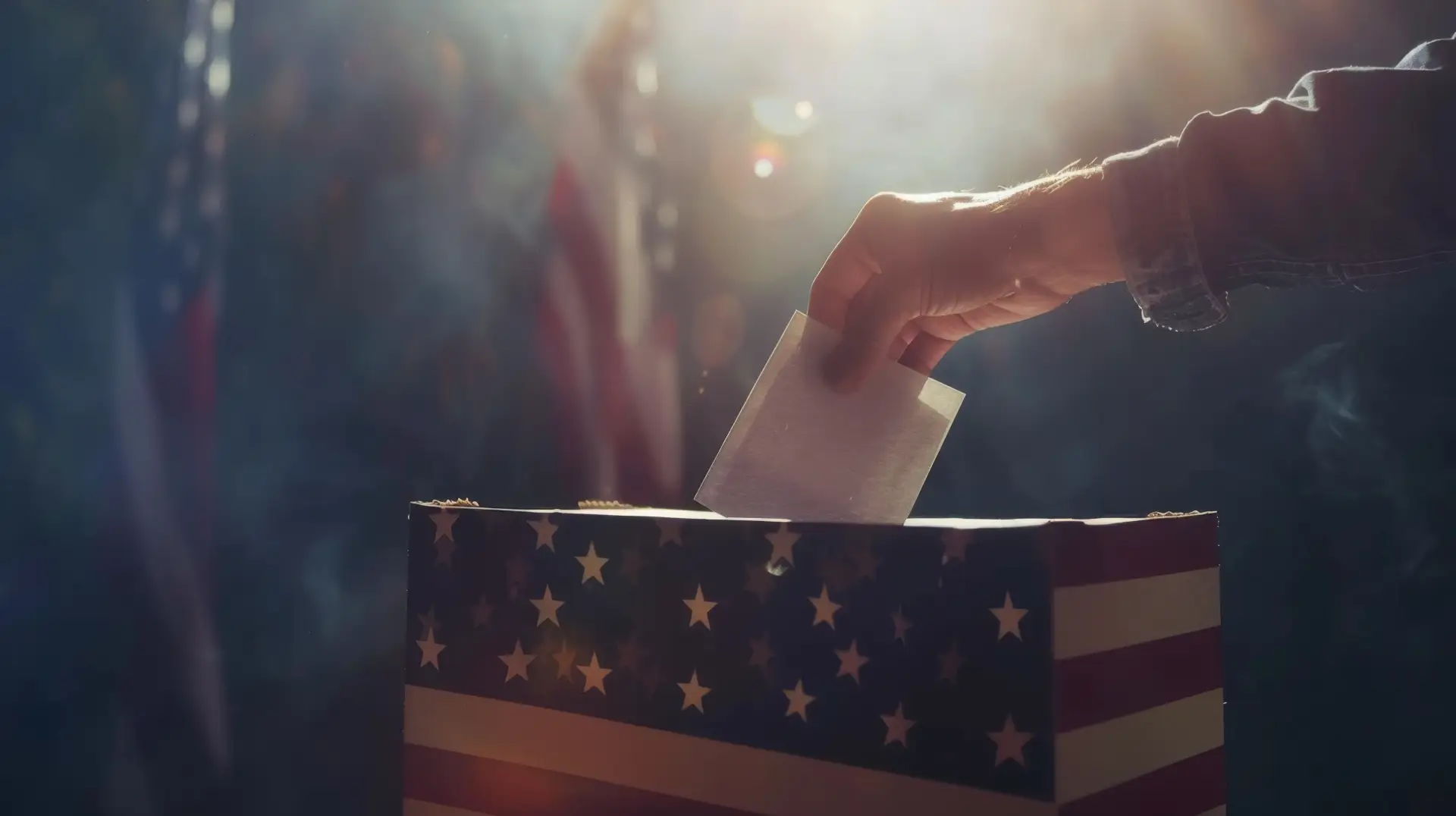Abstract
This whitepaper explores the role of charisma in the 2024 US presidential election, examining its impact on voter behaviour, media representation, and public perception. Through academic theories, case studies, and references, we analyse the interplay between charisma and policy, the evolution of charisma in American politics, and how different demographic groups respond to charismatic candidates. We also delve into the relationship between perceived charisma and authenticity and the influence of charismatic endorsements.
Introduction
Charisma, a transformative force in political leadership, takes centre stage in the 2024 US presidential election. The contest between Kamala Harris and Donald Trump serves as a compelling case study, showcasing the profound influence of charisma. This paper aims to dissect the elements of charisma and its potential to revolutionise the electoral process.
Charisma vs. Policy: What Matters More to Voters?
Academic theories suggest that while policy is crucial, charisma often plays a more significant role in swaying voters. Max Weber’s theory of charismatic authority posits that charismatic leaders inspire devotion and enthusiasm, frequently overshadowing policy details. Studies have shown that voters are more likely to support candidates they perceive as charismatic, even if they disagree with some of their policies.
- Max Weber’s Theory: Weber’s concept of charismatic authority highlights how leaders with exceptional personal qualities can inspire loyalty and enthusiasm. This form of authority contrasts with traditional and legal-rational forms, emphasising the leader’s personal appeal.
- Empirical Evidence: Research indicates that charismatic candidates can mobilise voters more effectively than those focusing solely on policy. For example, Barack Obama’s 2008 campaign demonstrated how charisma could galvanise a broad coalition of voters, many of whom were inspired by his vision and personal story.
- Voter Behavior: Surveys and studies reveal that voters often prioritise a candidate’s personality and perceived leadership qualities over specific policy proposals. This trend is particularly evident in undecided voters who may be swayed by a candidate’s charisma during debates and public appearances.
The Evolution of Charisma in American Politics
Charisma has evolved in American politics from the early days of oratory prowess to the modern era of media-savvy personalities. Historical figures like Franklin D. Roosevelt and John F. Kennedy exemplified charisma through public speaking and media presence. In recent years, the rise of social media has further amplified the importance of charisma, with candidates like Barack Obama and Donald Trump leveraging these platforms to connect with voters.
- Historical Context: Early American politicians like Abraham Lincoln and Theodore Roosevelt used their oratory skills to connect with the public. Franklin D. Roosevelt’s “fireside chats” on the radio were a pioneering use of media to project charisma and reassure the nation during the Great Depression.
- Television Era: The advent of television transformed political charisma. John F. Kennedy’s televised debates against Richard Nixon in 1960 showcased his telegenic appeal and helped him win the presidency. Ronald Reagan, known as “The Great Communicator,” used television to project warmth and confidence.
- Social Media Influence: In the digital age, social media platforms like Twitter, Facebook, and Instagram have become crucial for candidates to project their charisma. Obama’s 2008 campaign effectively used social media to engage younger voters, while Donald Trump’s unfiltered tweets have kept him in the public eye and energised his base.
Media Representation and Public Perception
The media, a powerful influencer, plays a pivotal role in shaping public perception of a candidate’s charisma. Candidates’ portrayals in news outlets, social media, and televised debates carry significant weight, often swaying voter opinions. For instance, Kamala Harris’s media representation often highlights her dynamic speaking style and empathetic approach, while Donald Trump’s media coverage emphasizes his bold and unfiltered communication.
- Media Framing: How media frames a candidate’s personality can enhance or diminish their perceived charisma. Positive coverage can amplify a candidate’s strengths, while negative coverage can highlight their flaws.
- Televised Debates: Debates are critical moments when candidates’ charisma is fully displayed. Effective debaters can use charisma to dominate the stage and sway undecided voters. For example, Kamala Harris’s debate performances have been noted for her sharp wit and commanding presence.
- Social Media Dynamics: Social media allows candidates to bypass traditional media filters and communicate directly with voters. This direct communication can enhance a candidate’s perceived authenticity and charisma. However, it also opens them up to greater scrutiny and potential missteps.
Demographic Responses to Charisma
Different demographic groups respond to charisma in varied ways. Younger voters prioritise charisma over policy, valuing candidates who appear relatable and inspiring. Conversely, older voters may place more emphasis on policy experience but still appreciate charismatic leadership. Gender and cultural background also influence how charisma is perceived and valued.
- Youth Engagement: Younger voters are often drawn to charismatic leaders who they perceive as dynamic and forward-thinking. This demographic values authenticity and relatability, which charismatic candidates can provide through social media engagement and public appearances.
- Older Voters: While older voters may prioritise policy experience, they still respond positively to charismatic leadership. Candidates who combine charisma with a track record of policy achievements often perform well with this demographic.
- Gender and Culture: Gender and cultural background influence how charisma is perceived. Female candidates, for example, may face different expectations and challenges in projecting charisma. Cultural values also play a role; in some communities, humility and collective leadership are valued over individual charisma.
Charisma and Authenticity
The relationship between perceived charisma and authenticity is not just complex, but also crucial. Authenticity, a cornerstone of trust and transparency, can enhance candidates’ charisma, making them appear more genuine and trustworthy. However, perceived inauthenticity can undermine charisma, leading to scepticism and distrust among voters. Authenticity is often judged based on consistency in behaviour, transparency, and alignment between words and actions.
- Authenticity as a Charismatic Trait: Authenticity is a critical component of charisma. Voters are likelier to trust and support candidates they perceive as genuine and consistent. Authenticity involves being true to oneself and transparent with the public.
- Challenges of Maintaining Authenticity: Candidates face the challenge of maintaining authenticity while navigating the demands of political campaigns. Inconsistencies between a candidate’s public persona and private actions can lead to perceptions of inauthenticity.
- Case Studies: Barack Obama’s authenticity was a significant factor in his appeal, as he was perceived as a genuine and relatable leader. Conversely, candidates seen as inauthentic, such as Mitt Romney in the 2012 election, may struggle to connect with voters.
The Impact of Charismatic Endorsements
Endorsements from charismatic figures can significantly boost a candidate’s appeal. For example, endorsements from celebrities or influential political figures can lend credibility and attract attention. In the 2024 election, endorsements from figures like Oprah Winfrey for Kamala Harris and Kanye West for Donald Trump have played notable roles in shaping voter perceptions.
- Celebrity Endorsements: Celebrity endorsements can draw attention to a candidate and enhance their appeal, particularly among younger voters. Celebrities often bring their charisma and fan base, which can translate into increased support for the endorsed candidate.
- Political Endorsements: Endorsements from influential political figures can lend credibility and legitimacy to a candidate. These endorsements can signal to voters that the candidate has the backing of respected leaders within their party.
- Effectiveness of Endorsements: The effectiveness of endorsements depends on the endorser’s credibility and the candidate’s ability to leverage the endorsement. For example, Oprah Winfrey’s endorsement of Barack Obama in 2008 significantly boosted his campaign.
Conclusion
Charisma remains a powerful force in American politics, influencing voter behaviour, media representation, and public perception. As the 2024 US presidential election unfolds, the interplay between charisma and policy will continue to shape the electoral landscape. Understanding the dynamics of charisma can provide valuable insights into the future of political leadership.
References
- Weber, M. (1947). The Theory of Social and Economic Organization. Free Press.
- Marcus, G. E., & MacKuen, M. B. (1993). Anxiety, Enthusiasm, and the Vote: The Emotional Underpinnings of Learning and Involvement during Presidential Campaigns. American Political Science Review, 87(3), 672-685.
- Stuckey, M. E. (1990). The President as Interpreter-in-Chief. Chatham House Publishers.
- Iyengar, S., & Kinder, D. R. (1987). News That Matters: Television and American Opinion. University of Chicago Press.
- Dalton, R. J. (2016). The Good Citizen: How a Younger Generation Is Reshaping American Politics. CQ Press.
- Burns, N., Schlozman, K. L., & Verba, S. (2001). The Private Roots of Public Action: Gender, Equality, and Political Participation. Harvard University Press.
- Goffman, E. (1959). The Presentation of Self in Everyday Life. Anchor Books.
- West, D. M. (2017). Celebrity Politics. Routledge.
- Knott, M. L. (2008). Oprah Winfrey’s Endorsement of Barack Obama: The Impact on the 2008 Democratic Primary. Political Research Quarterly, 61(4), 679-689.









